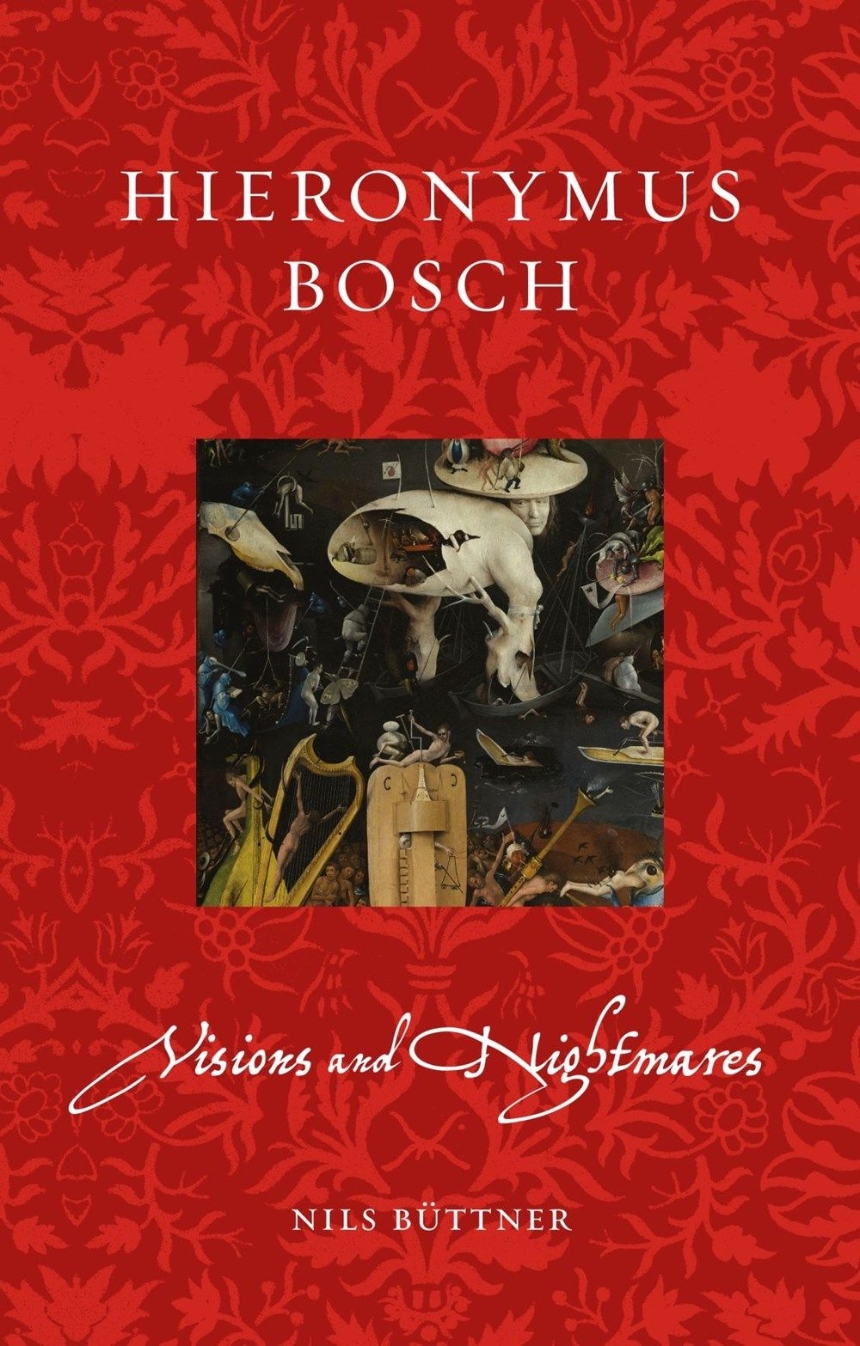An accessible biography of the celebrated early Netherlandish painter, now in paperback.
In his lifetime the early Netherlandish painter Hieronymus Bosch was famous for his phantasmagoric images, and today his name is synonymous with the infernal. The creator of expansive tableaus of fantastic and hellish scenes—where any devil not dancing is too busy eating human souls—he has been as equally misunderstood by history as his paintings have. In this book, Nils Büttner draws on a wealth of historical documents—not to mention Bosch’s paintings—to offer a fresh and insightful look at one of history’s most peculiar artists on the five-hundredth anniversary of his death.
Bosch’s paintings have elicited a number of responses over the centuries. Some have tried to explain them as alchemical symbolism, others as coded messages of a secret cult, and still others have tried to psychoanalyze them. Some have placed Bosch among the Adamites, others among the Cathars, and others among the Brethren of the Free Spirit, seeing in his paintings an occult life of free love, strange rituals, mysterious drugs, and witchcraft. As Büttner shows, Bosch was—if anything—a hardworking painter, commissioned by aristocrats and courtesans, as all painters of his time were. Analyzing his life and paintings against the backdrop of contemporary Dutch culture and society, Büttner offers one of the clearest biographical sketches to date alongside beautiful reproductions of some of Bosch’s most important work. The result is a smart but accessible introduction to a unique artist whose work transcends genre.
In his lifetime the early Netherlandish painter Hieronymus Bosch was famous for his phantasmagoric images, and today his name is synonymous with the infernal. The creator of expansive tableaus of fantastic and hellish scenes—where any devil not dancing is too busy eating human souls—he has been as equally misunderstood by history as his paintings have. In this book, Nils Büttner draws on a wealth of historical documents—not to mention Bosch’s paintings—to offer a fresh and insightful look at one of history’s most peculiar artists on the five-hundredth anniversary of his death.
Bosch’s paintings have elicited a number of responses over the centuries. Some have tried to explain them as alchemical symbolism, others as coded messages of a secret cult, and still others have tried to psychoanalyze them. Some have placed Bosch among the Adamites, others among the Cathars, and others among the Brethren of the Free Spirit, seeing in his paintings an occult life of free love, strange rituals, mysterious drugs, and witchcraft. As Büttner shows, Bosch was—if anything—a hardworking painter, commissioned by aristocrats and courtesans, as all painters of his time were. Analyzing his life and paintings against the backdrop of contemporary Dutch culture and society, Büttner offers one of the clearest biographical sketches to date alongside beautiful reproductions of some of Bosch’s most important work. The result is a smart but accessible introduction to a unique artist whose work transcends genre.
208 pages | 60 color plates, 3 halftones | 5 1/2 x 8 1/2 | © 2016
Reviews
Table of Contents
1 Visions and Nightmares
2 A Painter in Den Bosch
3 Pious Donations
4 From Christmas to Easter
5 Devout Examples
6 The Art of Invention and the Invention of Art
7 The Seven Deadly Sins and the Last Judgement
8 The Haywain and The Garden of Earlthy Delights
9 The Folly of the World
10 Interpretations
References
Bibliography
Photo Acknowledgements
Index
2 A Painter in Den Bosch
3 Pious Donations
4 From Christmas to Easter
5 Devout Examples
6 The Art of Invention and the Invention of Art
7 The Seven Deadly Sins and the Last Judgement
8 The Haywain and The Garden of Earlthy Delights
9 The Folly of the World
10 Interpretations
References
Bibliography
Photo Acknowledgements
Index

